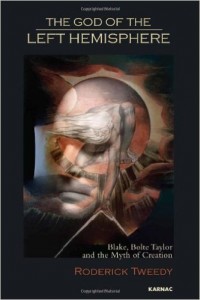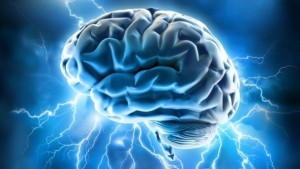People do seem to like lists for some reason. When I suggested Five Principles of Middle Way Philosophy (scepticism, provisionality, incrementality, agnosticism and integration) these seemed to have been helpful in providing a way in. The Five Principles have the advantage of being (largely) positive, but they may not bring out how Middle Way Philosophy challenges current ways of thinking: a more negative, but necessary argument. It is that role I have in mind for this list of Seven Contentions, which has evolved out of some earlier, similar lists.
Why ‘against the academics’? Well, I’m obviously not against academics as people, but I do want to challenge the effects of academic over-specialisation, and the over-confidence in one’s assumptions that often seems to come from academics spending decades working in one particular niche. What these Seven Contentions all do is challenge widespread assumptions in Western academic culture that I think seriously hold us back. Like the Five Principles, it is necessary to understand them together rather than piecemeal, so a relatively short summary like this may help to put them all in view together. I am well aware that there are a few academics that might agree with me on some of these, but I have yet to find one that recognises them all in relation to each other.
1. The Middle Way is a method of judgement, not a claim about reality
This is the most important point where I part company with the way in which most Buddhists and scholars of Buddhism tend to present the Middle Way. For them the Middle Way story tends to be that the Buddha gained awakening to a ‘reality’ beyond the delusions of ordinary existence by avoiding eternalism and nihilism: but beliefs ab out such a ‘reality’ tend to then undermine the Middle Way in Buddhism at every point by creating new metaphysical beliefs about the Buddha’s achievement and authority. The Middle Way needs to decisively move away from metaphysical ways of thinking, and it can’t do this if it is understood in metaphysical terms itself. Instead it needs to be seen as a method of judgement that avoids both positive and negative absolutisations. Once you accept that, you also need to start looking at the huge implications: that it offers a universal basis of more adequate judgement for both science and ethics, and thus does not necessarily need to be understood in the terms of Buddhist tradition at all.
out such a ‘reality’ tend to then undermine the Middle Way in Buddhism at every point by creating new metaphysical beliefs about the Buddha’s achievement and authority. The Middle Way needs to decisively move away from metaphysical ways of thinking, and it can’t do this if it is understood in metaphysical terms itself. Instead it needs to be seen as a method of judgement that avoids both positive and negative absolutisations. Once you accept that, you also need to start looking at the huge implications: that it offers a universal basis of more adequate judgement for both science and ethics, and thus does not necessarily need to be understood in the terms of Buddhist tradition at all.
For more on this see The Buddha and the Middle Way.
2. Full-blooded scepticism is not a threat, but rather a stimulus to provisionality
We can question everything as much as we like – no holds barred – and there cannot possibly be anything ‘extreme’ about such scepticism as long as we remember to treat negative claims with just as much scepticism as positive ones. Scepticism is then just a helpful prompt to provisionality in our judgements, making us aware that we have no certainty. It is not about to destroy science or make anyone’s life impossible, but on the contrary brings us back from abstract certainties to fallible experience.
– and there cannot possibly be anything ‘extreme’ about such scepticism as long as we remember to treat negative claims with just as much scepticism as positive ones. Scepticism is then just a helpful prompt to provisionality in our judgements, making us aware that we have no certainty. It is not about to destroy science or make anyone’s life impossible, but on the contrary brings us back from abstract certainties to fallible experience.
For more on this see The misunderstanding of scepticism.
3. Metaphysics is not inevitable
The standard objection to this whole approach from analytic philosophers and related academics is that metaphysics is inevitable, because it is taken to consist in basic assumptions we make in our lives. But no basic assumptions are absolutely beyond question – even that the universe exists, or that the world didn’t begin last Tuesday – even if we do often take them for granted. If we treat such assumptions as beyond question then they become absolutisations that are potentially rigidifying our thinking. But if we start to recognise them as ultimately questionable, even when we actually have a lot of confidence in them (99.99% confidence), we stand a chance of avoiding that absolutisation. The view that metaphysics is inevitable has become part of academic culture, but it is most unhelpful, because it tends to distract people from recognising the damaging effects of absolutes that repress alternatives and claim to have the whole story.
For more on this see the video ‘What’s wrong with metaphysics’.
4. Objectivity is a matter of degree
There is an incremental sense of ‘objectivity’ as a matter of degree in widespread use. However, for some reason there is also a widespread academic view that an absolute, God’s eye view of ‘objectivity’ is the default (and that it is opposed to ‘subjectivity’). But the God’s eye view sense is in practice completely irrelevant to human beings. How did we manage to let a practically irrelevant sense steal the show? If we see objectivity as a matter of degree (incremental) we do not have to believe in ‘truths’ beyond experience, only recognise that at some points we judge in a bigger and more adequate way than others.
For more on this see the ‘Objectivity’ page.
5. Meaning is both cognitive and emotive: inextricably
A great deal of common academic reasoning is fatally undermined by the assumption that ‘real’ meaning is solely cognitive – the kind of meaning one can look up in a dictionary – and that this can be separated from emotive meaning (how things feel to us). But this distinction is a merely abstract one, having no basis in our experience where every word or symbol that denotes something also connotes and vice-versa. This purely abstract distinction is then allowed to run the show in all sorts of other ways, by deciding the basis on which we will think about how to justify our beliefs or about what is right. If our experience of meaning is embodied, as linguist George Lakoff and philosopher Mark Johnson have shown, then cognitive and emotive meaning can no longer be separated, and we can no longer justify academic ‘business as usual’ proceeding on the basis that they can.
For more on this see the ‘Embodied meaning’ page.
6. Facts cannot be divided from values, nor reasons from emotions
If cognitive and emotive meaning cannot be separated,  nor can the beliefs about ‘facts’ and ‘values’ or ‘reason’ and ’emotion’ that are erected on the same assumptions. These are false dichotomies on which huge intellectual edifices have been built, solely on the basis that facts and values can be distinguished in abstract analysis. But in human experience they are never separated, every fact involving values and every value involving presumed facts. Neuroscientific investigation has also failed to find an independently operating part of the brain for ‘reason’ as opposed to ’emotion’. Any adequate ways of understanding how to make judgements in our experience have to deal with these things together. That implies that reductions of issues both to logical processing and to intuitive insight are equally likely to be mistaken.
nor can the beliefs about ‘facts’ and ‘values’ or ‘reason’ and ’emotion’ that are erected on the same assumptions. These are false dichotomies on which huge intellectual edifices have been built, solely on the basis that facts and values can be distinguished in abstract analysis. But in human experience they are never separated, every fact involving values and every value involving presumed facts. Neuroscientific investigation has also failed to find an independently operating part of the brain for ‘reason’ as opposed to ’emotion’. Any adequate ways of understanding how to make judgements in our experience have to deal with these things together. That implies that reductions of issues both to logical processing and to intuitive insight are equally likely to be mistaken.
For more on this see the ‘Facts and values’ page.
7. I encounter myself as a wish, not a thing
I am an ego (and probably you are too!). That means that I consist in a set of desires or identifications – or at least, that’s what I encounter when I experience ‘myself’. I can’t encounter myself either as a thing or as the absence of a thing, and these are just wishful thinking abstractions foisted onto my ever-changing experience of wanting to be a thing. Academia often seems to have rejected Descartes’ view of the absolute self, but not to have taken on board all the implications of doing so – which includes there being no single self to make ‘rational’ philosophical or scientific observations. How well I can judge the world around me seems to depend on how well I can integrate the conflicting desires that threaten to distract and delude me. I cannot be assumed to simply have such a stable self, and thus the scientist also cannot be discounted from science by maintaining a model of ‘God’s eye view’ objectivity.
For more on this see the ‘Self and ego’ page.
Picture credits: 2nd: ‘Change your mind’ by Dr CVSB, CCSA 4.0; 3rd: cartoon by Norma Smith, reproduced from ‘Migglism’; 4th: Boy with blocks by ragesoss, CCSA3.0






